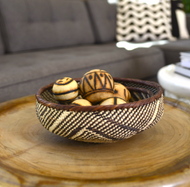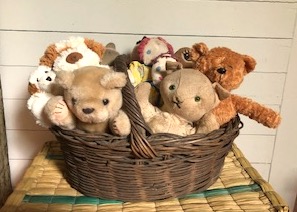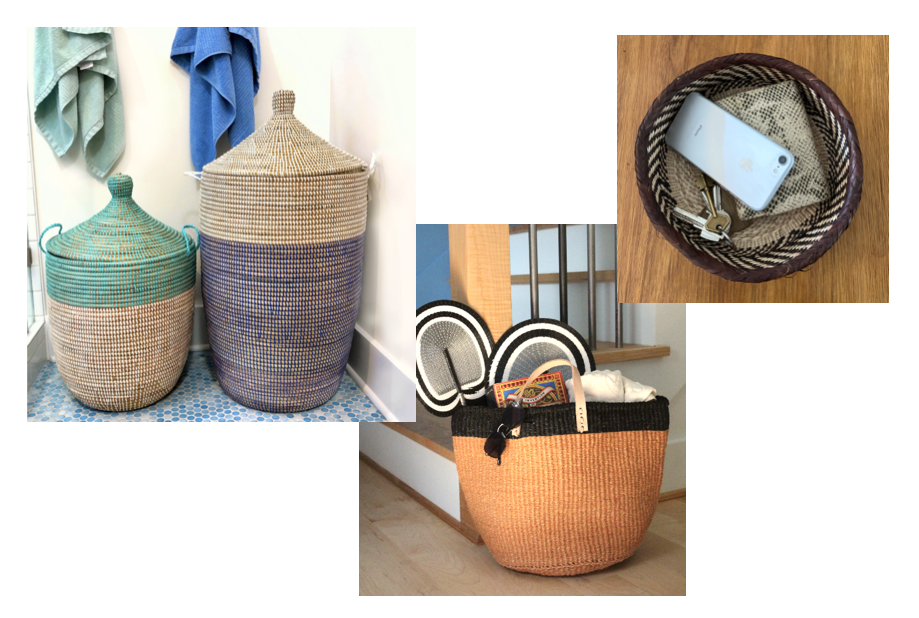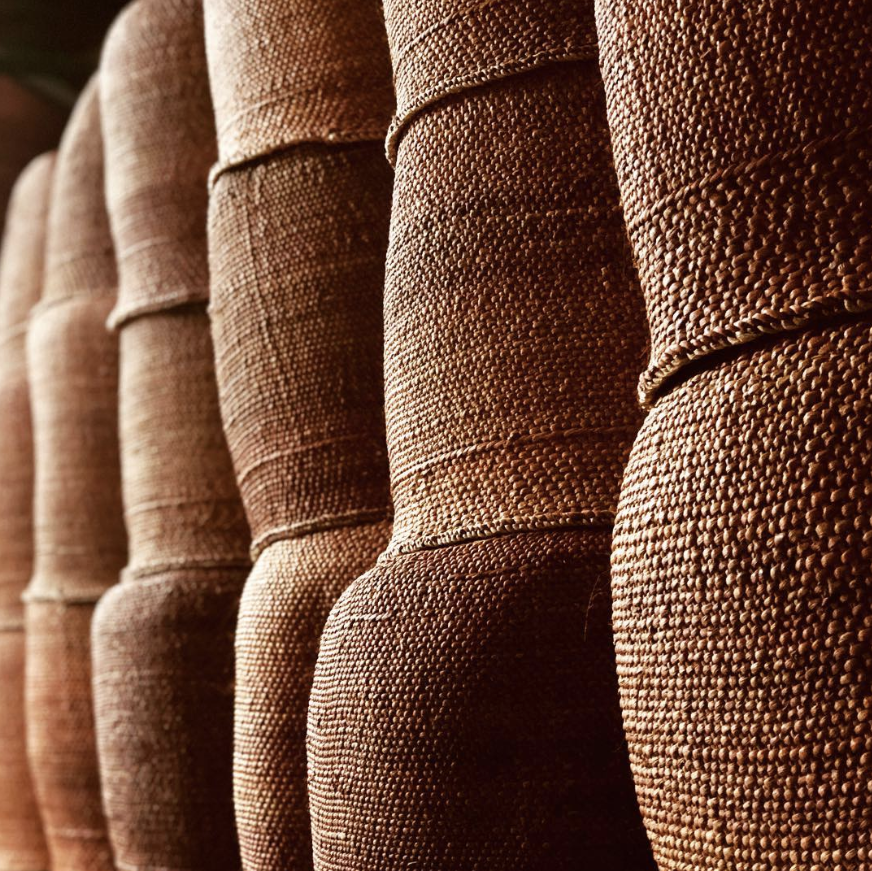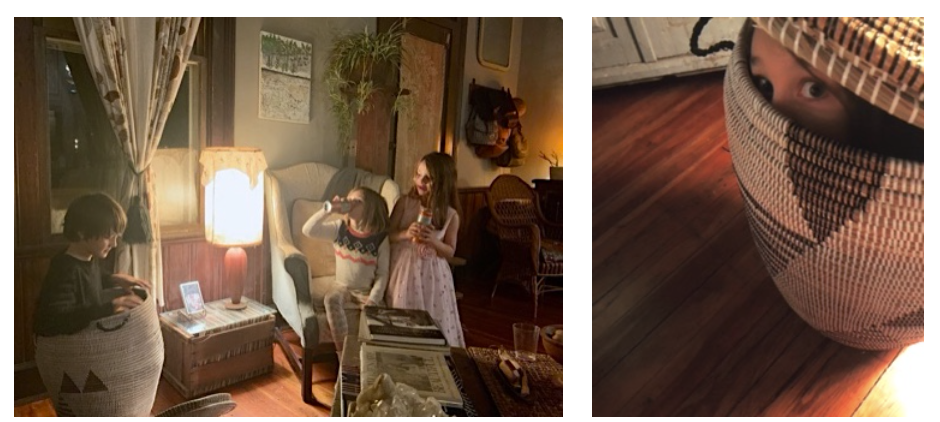My love affair with Handmade African Baskets
Posted by Nancy Lendved who is a basket lover, an Mbare Team member and a marvelous wordsmith. on May 26th 2023
My enduring love affair with antiques began with a basket, so it’s fitting that I’ve landed here at Mbare. Four or so decades ago, I drove from my home in D.C. to interview for a job in Baltimore. This was long before we all had maps on our phones, so I was grateful to spy the presence of an attractive stranger whom I approached to ask for directions, and whom I ended up dating.
On one of our excursions, we came upon an inviting barn snugged alongside a sweet country road. It beckoned me to stop, and Pat complied. A multitude of baskets hung from the trusses, but it didn’t take long for me to choose mine.
Baskets are like soulmates: When you know, you know. My romance with Pat was short-lived, but I still have my basket. That smooth wicker beauty with its tilted handle now holds stuffed animals for my grandkids. It cost me all of two bucks.
Nancy's original basket purchased four or so decades ago.
I truly use my baskets
Unlike Martha Stewart, who has a separate structure to store her basket collection, most of mine are used, and lovingly abused by felines. Having just spent a ridiculously long time attempting to repair the lid of a still-pretty yet brittle one, I can attest to the patience and skill required for basket weaving.
I have enormous respect for these artisans. The meditative focus required to gather and prepare natural materials and then to complete a vessel by coiling, plaiting or weaving is humbling. This is not a craft for multitaskers.
We don’t dare take certain inventions for granted. While not as transformative to trade and transport as the wheel, and notwithstanding their ubiquity in myth and religion, baskets are seemingly overlooked as the marvel of carriage they are.
Baskets have been a part of life for millennia
Moses survived three months floating in his basket down the Nile. Romulus and Remus were placed in a basket when they were abandoned in the Tiber River. We refer to regions that produce grains for national or global consumption as breadbaskets.
Baskets have become integral to our celebration of rebirth and renewal at Easter. They tote our picnics, they carry our market bounty, they corral our keys and those pesky easily-lost little things, they conceal our dirty laundry. They decorate our homes.
Basketmaking is one of the oldest arts in modern human history, predating the pottery that was too heavy and fragile to serve the needs of the hunter gatherers who traversed great distances in their quest for survival.
Obviously baskets haven’t survived as well as pottery because they biodegrade, but archeologists have found evidence of ancient African baskets in Upper Egypt going back 10-12,0000 years.
I find that fascinating!
A basket for every purpose
At Mbare our handmade African baskets include leather-handled sisal totes, earthy yet elegant Tonga chatchall bowls, adorable lidded animal baskets perfect for tiny treasures, and many laundry basket hampers from Senegal – open or lidded.
Our new and vintage wall baskets and striking sculptural vessels lend warmth and texture to any interior. To quote my colleague Kara, “You can never have too many baskets.” And she’s right.
The universality of baskets reflects the abundance of free natural materials growing across our planet, the continued need to gather, store and protect precious commodities like grain, and human ingenuity.
And while basket weaving figures in nearly every culture, the utilitarian, decorative and often symbolic nature of the craft has become emblematic of the African continent.
The first thing I noticed when I walked into Mbare was the scent of grass and earth that wafted through the warehouse. I could breathe the baskets before I could see them. Each basket that makes its way to us tells a story: the story of its maker.
The ones I’ve chosen during my time at Mbare are not only useful and beautiful, they connect me to these artisans. They’ve been woven by skilled hands in a far-away land and have made their way to my home, where stories continue to unfold.
Nancy's grandchildren playing with her Mbare baskets in her home.

